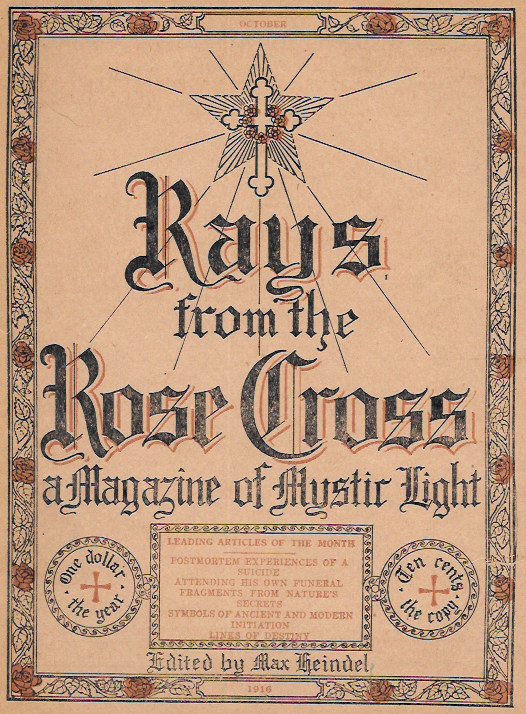
| rosanista.net | ||
| Simplified Scientific Christianity |

Q. What is the state of death of the victim of strong desire?
A. Take the case of the drunkard. He is just as fond of intoxicants after death as before.
Q. How is this so without a dense body?
A. It is not the dense body that craves drink. It is made sick by alcohol and would rather be without it. It vainly protests in different ways, but the desire body of the drunkard craves the drink and forces the dense body to take it, that the desire body may have the sensation of pleasure resulting from the increased vibration.
Q. What becomes of that desire?
A. That desire remains after the death of the dense body, but the drunkard has in his desire body neither mouth to drink nor stomach to contain physical liquor.
Q. Would the atmosphere of a saloon avail him?
A. He may and does get into saloons, where he interpolates his body into the bodies of the drinkers to get a little of their vibrations by induction, but that is too weak to give him much satisfaction.
Q. Could he enjoy the fumes of whiskey?
A. He may and sometimes does get into a whiskey cask, but that is of no avail either for there are in the cask no such fumes as are generated in the digestive organs of a tippler. It has no effect upon him, and he is like a man in an open boat upon the ocean, "Water, water, everywhere, but not a drop to drink"; consequently he suffers intensely.
Q. What finally is his lot?
A. In time he learns the uselessness of longing for drink which he cannot obtain. As with so many of our desires in the Earth life, all desires in the Desire World die for want of opportunity to gratify them.
Q. Does he then leave this region?
A. When the drunkard has been purged he is ready, so far as this habit is concerned, to leave Purgatory and ascend into the heaven world.
Q. Can we say that God inflicts this punishment?
A. No. This proves that it is not an avenging Deity that makes Purgatory or hell for us but our own individual evil habits and acts.
Q. How long must we endure Purgatory?
A. According to the intensity of our desires will be the time and suffering entailed in their expurgation. It would have been no suffering to the drunkard to lose his worldly possessions. If he had any, he did not cling to them. Neither would it cause a miser any pain to be deprived of intoxicants. But a miser does care about his gold and the drunkard about his drink, so the unerring law gives to each that which is needed to purge him of his unhallowed desires and evil habits.
Q. Is such a teaching supported in the scriptures?
A. Yes, it is the law that says, "Whatsoever a man soweth, that shall he also reap." It is the Law of Cause and Effect which rules all things in the three worlds, in every realm of Nature — physical, moral and mental. The result may be manifest immediately or it may be delayed for years or for lives, but sometime, somewhere, just and equal retribution will be made.
— Reference: The Rosicrucian Cosmo-Conception
— Rays from the Rose Cross Magazine, March, 1980, p. 115

|

|

|
|
|
Contemporary Mystic Christianity |
|
|
This web page has been edited and/or excerpted from reference material, has been modified from its original version, and is in conformance with the web host's Members Terms & Conditions. This website is offered to the public by students of The Rosicrucian Teachings, and has no official affiliation with any organization. | Mobile Version | |
|